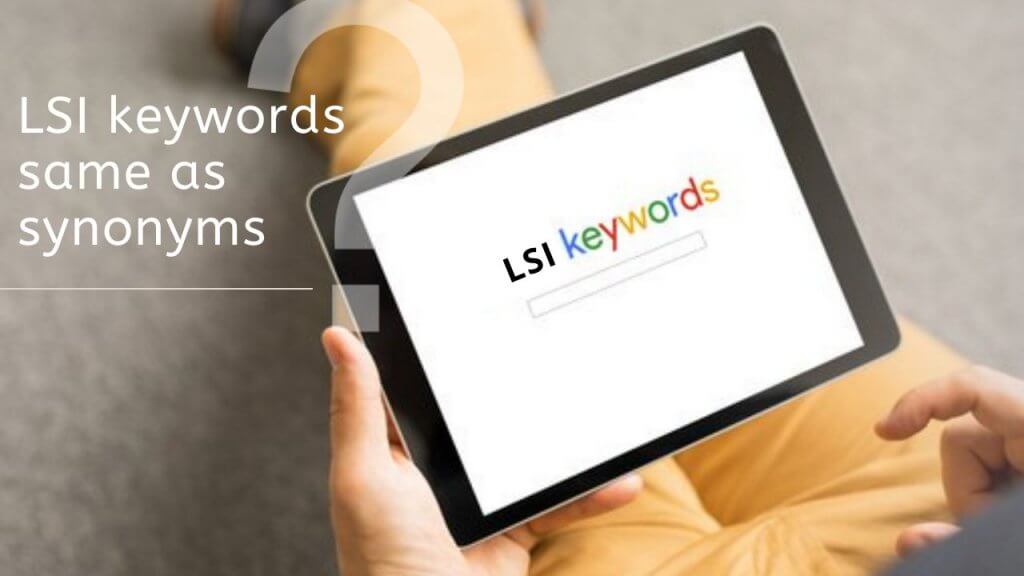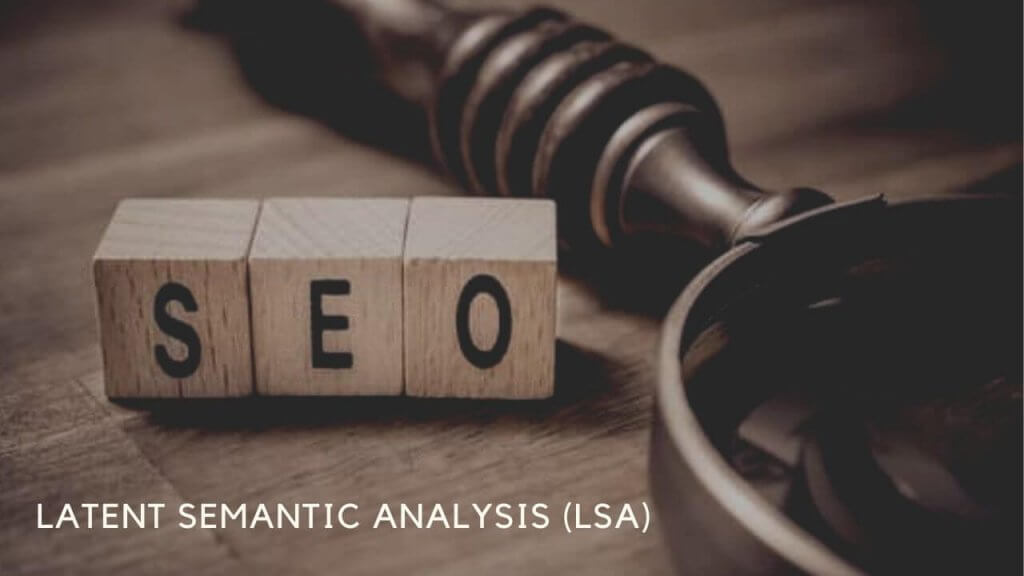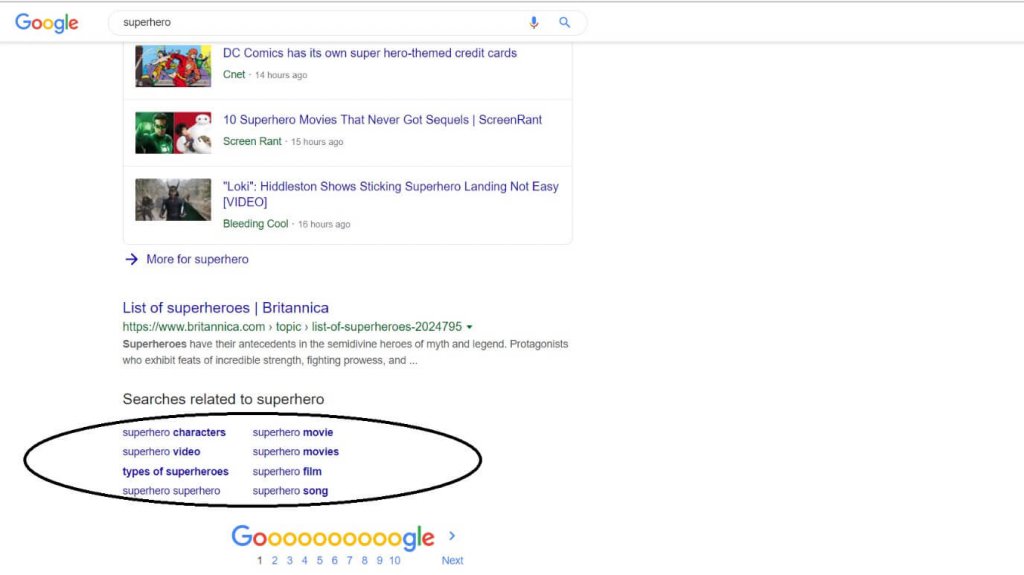
What are LSI keywords
LSI (latent semantic indexing) keywords are keywords which are semantically linked to a main keyword.
In simpler words, they are keywords similar or related to the main keyword. Search engines use latent semantic indexing to analyse other words that people are frequently using around a topic. They’re highly correlated. An example could be “hunger” and “thirst”, or “dating” and “relationships”.
Are LSI keywords same as synonyms of the main keyword?

In some cases, the LSI keyword could simply be a synonym. However, it is not essential that it be a synonym of the main keyword. For example, ‘thirst’ is not a synonym of ‘hunger’ but they are related and often may appear together in webpages around the world.
How do search engines use LSI?
Search engines (especially Google) use LSI to decide the quality of the content on a page, by checking for words that ideally should appear nearby a given search keyword. It also helps them decide the relevance. For example, if I search for “best pizza”, search engines will look for words like “pizza restaurant”, “order pizza” (commonly found along with the words “best pizza” on webpages). This way, if a page has “best pizza” only as a passing reference, and doesn’t contain these related keywords, it is unlikely to get picked up by Google as the top recommendation on page one.
What is LSA?
LSA stands for latent semantic analysis. LSA is the system used to determine LSI keywords by search engines. By taking a huge index of billions of web pages, the search engines learn which words are correlated, and which concepts relate to one another.

For example, using LSA, a search engine like Google could recognize that going to the beach is related to sun-tanning, bikini wear, scuba-diving or beach sports. This way it can analyse search queries better and give more accurate results by looking at a range of keywords on the pages instead of just the search term.
What are LSI keywords’ benefits? Why is it important?
LSI keywords are becoming increasingly important as a way to tell search engines about what our page is about. Also, people searching for related keywords other than our main keyword are also more likely to stumble on our page.
How do I find my LSI keywords?
There are many tools available online for finding LSI keywords for any given main keyword. You can also look at the “searches related to” section at the bottom of the google SERP (search engine results page) to find good LSI keyword ideas for your content or blog.

The below video has other ways you can brainstorm for LSI keywords before you write your content:
Where to use LSI Keywords?
Your main heading will typically be your main keyword, but you can use LSI keywords in sub-headings, as link anchor text in some of your back-links or external/internal links, throughout the page’s content (of course!), in alt names, image file names etc.
Any other considerations before using these keywords?
Yes. Google’s algorithms have gotten incredibly smart because of the vast volumes of data and analytics used by that company. You won’t be able to trick it easily. It’s best to use LSI keywords in a natural, organic way rather than stuffing them artificially. Instead of repeating your main keyword over and over again in your content, try to use LSI keywords here and there.
A final word
Instead of using just the main target keyword, start to think of articles as corresponding to clusters of keywords which are closely-related. In the usual elements of the page when you’re doing SEO (such as headlines, body, alt-text etc.) use some of these related keywords instead of repeating the main keyword endlessly. Don’t forget to use the main keyword as well as LSI keywords in only a natural, organic way without trying to stuff them needlessly. It’s incredibly easy to use LSI keywords for SEO. Many of it may already be done by you without even realizing it. Understanding this search engine function can help you improve and think of this more strategically.
About the Author:
Neeraj Ramnani is the founder of GrowthFoundation.in and WebKow.com. He is a digital marketer since 2011, and has pioneered some of the most innovative approaches in this field over these years. He’s worked with over 40 brands for their result-oriented digital marketing.
He’s an alumnus of IIM Indore and SVNIT Surat.





Leave a Reply
You must be logged in to post a comment.